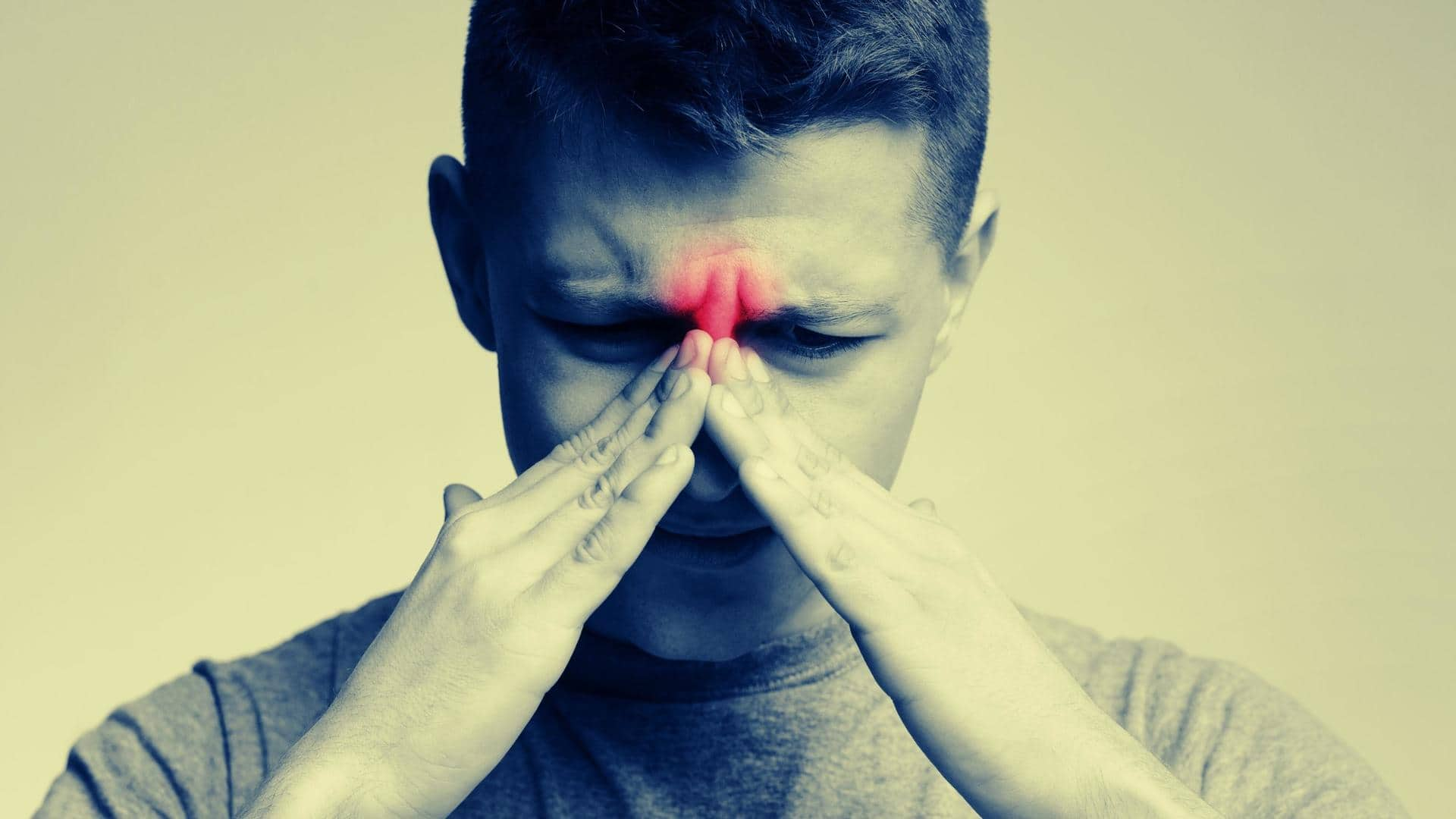
From causes to treatment, here's everything to know about sinusitis
What's the story
Sinusitis is a very common health condition that can affect anyone regardless of age. Weather conditions, flu, or allergies can trigger this situation, leaving you with a host of symptoms and sensations that may last for a couple of hours or days. From its meaning and causes to symptoms and treatments, here is everything you should know about sinusitis. Read on!
Overview
Sinusitis is an inflammation or swelling of sinuses
The sinuses are four paired cavities or spaces in the head that extend to the face as well. Their job is to produce thin mucus that drains from the nose, keeping it clean and free of germs. Sinusitis occurs when these tissues swell or experience inflammation. As a result, they get filled and completely jammed with mucus, leading to the growth of bacteria.
Symptoms
Facial pressure and nasal discharge are some of its signs
People down with sinusitis go through multiple symptoms at a time, depending on their condition. They may experience mild to excessive facial pressure or pain, post nasal drip (when mucus drips down the throat), nasal discharge (thick yellow/green discharge from the nose), or stuffy nose. Additionally, patients may also experience headaches, earaches, toothache, bad breath, fatigue, cough, and fever in certain cases.
Classification
There are four different types of sinusitis
Acute bacterial sinusitis creates flu-like symptoms like runny nose, stuffy nose, and facial pain. It lasts for about 10 days, and its symptoms may reappear and worsen over time. Chronic sinusitis includes the above symptoms and reduced sense of smell for 12 weeks or more. Subacute sinusitis lasts for four to 12 weeks, whereas recurrent acute sinusitis returns four or more times a year.
Causes
It occurs due to common cold, polyps, or weak immunity
Sinusitis can occur due to the common cold and various seasonal allergies. The septum, which is a line of cartilage that divides your nose, can also be a cause when it has deviated. Even a weak immune system can trigger this condition. Another cause of sinusitis is the growth of polyps, which are soft and non-cancerous growths, on the sinuses or inside the nose.
Treatment
One can find respite with over-the-counter medicines and fluids
Sinusitis can be cured with multiple treatments depending upon the severity of your condition. The doctor may prescribe you certain over-the-counter medications to treat the common cold or allergies. If symptoms don't improve, they may give you antibiotics, oral decongestants, intranasal sprays, or nasal drops to help you feel better. Rinsing the nose with saline solutions is also something your doctor may recommend.